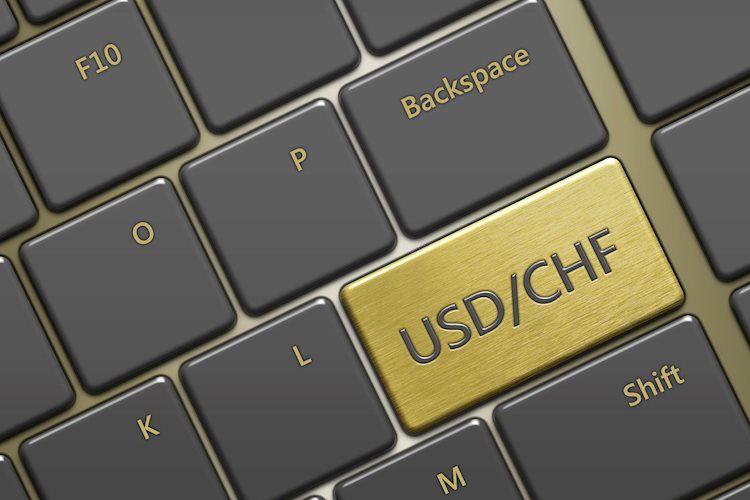The USD/CHF pair is currently trading around 0.9015 during the Asian session on Thursday with a mild bearish bias. Federal Reserve officials are maintaining a cautious stance, refraining from committing to interest rate cuts. On the other hand, the Swiss Consumer Price Index is expected to show an increase of 1.4% in June. The softer US Dollar and declining US bond yields are weighing on the USD/CHF pair, with US markets closed on Independence Day. The focus will shift to US employment data on Friday, including Nonfarm Payrolls, Unemployment Rate, and Average Hourly Earnings, as weaker-than-expected US Services PMI for June exerts some selling pressure on the Greenback.
The Swiss Franc (CHF) is considered Switzerland’s official currency and is among the top ten most traded currencies globally, with values influenced by various factors such as market sentiment, economic health, and actions by the Swiss National Bank (SNB). The Swiss Franc was previously pegged to the Euro between 2011 and 2015, causing turmoil in markets when the peg was removed. Despite no longer being pegged, the CHF remains highly correlated with the Euro due to the Swiss economy’s reliance on the Eurozone.
The CHF is often viewed as a safe-haven asset due to Switzerland’s stable economy, strong export sector, large central bank reserves, and political neutrality. During times of market stress, investors tend to buy the Swiss Franc, strengthening its value against riskier currencies. The SNB meets four times a year to decide on monetary policy, aiming for an annual inflation rate of less than 2%. Higher interest rates are positive for the CHF as they lead to higher yields, making Switzerland more attractive to investors.
Macroeconomic data releases in Switzerland play a crucial role in assessing the economy’s state and can impact the valuation of the Swiss Franc. Economic growth, inflation, unemployment, and central bank reserves can trigger moves in the CHF. Switzerland’s strong dependency on the Eurozone economy means stability in the Eurozone is essential for the Swiss Franc. The correlation between the Euro and the CHF is high, indicating the impact of Eurozone stability on the CHF’s performance.
In conclusion, the USD/CHF pair is influenced by various factors, including Federal Reserve’s cautious stance, Swiss Consumer Price Index data, and market sentiment. The Swiss Franc’s status as a safe-haven asset, dependent on the Eurozone, and the SNB’s monetary policy decisions also play a significant role in determining the currency’s value. Investors should monitor economic data releases and global market trends to understand the potential impact on the CHF’s performance in the forex market.











